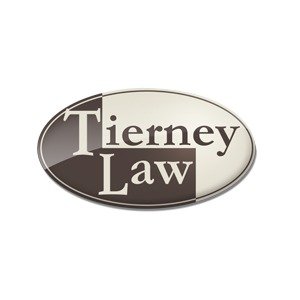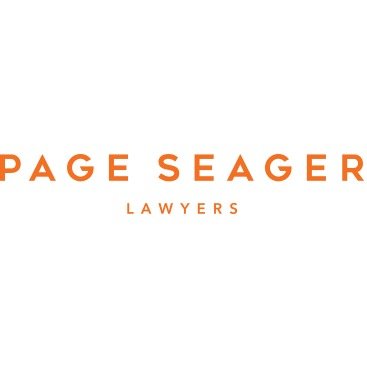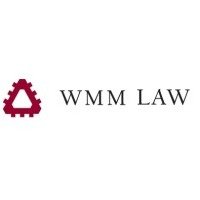Best International Trade Law Lawyers in Hobart
Share your needs with us, get contacted by law firms.
Free. Takes 2 min.
List of the best lawyers in Hobart, Australia
About International Trade Law in Hobart, Australia
International Trade Law in Hobart, Australia, serves as a framework for the movement of goods and services across international borders. It encompasses various aspects, including import and export regulations, trade agreements, tariffs, and compliance with international standards. Hobart, as part of Australia, operates under both Australian federal trade laws and international agreements to which Australia is a party. The city of Hobart is ideally positioned as a gateway for regional trade, benefiting from Australia's strong trade links with Asia-Pacific countries.
Why You May Need a Lawyer
Legal assistance in International Trade Law may be necessary for numerous situations. Common instances include:
- Navigating complex trade agreements and understanding tariff implications.
- Ensuring compliance with Australian customs regulations and international treaties.
- Resolving disputes with foreign trade partners through negotiation or arbitration.
- Facilitating cross-border investments and understanding the legal obligations involved.
- Managing risks and liabilities associated with international transactions.
- Assistance in drafting and reviewing international contracts and agreements.
- Guidance on export controls and restrictions on certain goods and technologies.
Local Laws Overview
The local laws relevant to International Trade Law in Hobart are shaped by Australian federal legislation and international treaties. Some key aspects include:
- Customs Act 1901: Governs the import and export of goods in Australia, including classifications, duty payments, and prohibited goods.
- Free Trade Agreements (FTAs): Australia is a signatory to numerous FTAs that reduce barriers to trade with partner countries, impacting local businesses in Hobart.
- Biosecurity Laws: Regulates the importation of goods to protect Australia's agriculture and natural resources from pests and diseases.
- Trade Practices Act: Enforces fair trading practices and ensures competition within the market.
- Foreign Investment Review Board (FIRB) Guidelines: Ensures that foreign investments are in line with Australia's national interest.
Frequently Asked Questions
What is the role of a trade lawyer in Hobart?
A trade lawyer in Hobart provides legal advice and representation on matters pertaining to international commerce, assisting clients with compliance, negotiation, and litigation related to trade laws.
Do I need to comply with both Australian and foreign trade laws?
Yes, businesses engaged in international trade must comply with both Australian regulations and relevant laws in the foreign jurisdiction with which they are trading.
What are Incoterms, and why are they important?
Incoterms are a set of international commercial terms published by the International Chamber of Commerce that standardize delivery terms, responsibilities, and risks between buyers and sellers in international transactions.
How do tariffs affect my business?
Tariffs are taxes imposed on imported goods, which can affect the cost and pricing strategy of your business. Understanding applicable tariffs helps in planning and maintaining competitiveness.
Can trade disputes be resolved outside of court?
Yes, trade disputes can often be resolved through arbitration or mediation, which are faster and less costly alternatives to court proceedings.
What should I do if my goods are detained at customs?
If goods are detained, consult with a trade lawyer to understand the reasons for detention and to facilitate compliance or rectify the issue promptly.
What is the impact of a Free Trade Agreement?
Free Trade Agreements can reduce or eliminate tariff duties and improve market access, thereby offering competitive advantages to businesses within member countries.
How do international sanctions affect trade?
Sanctions limit or prohibit trade with certain countries or entities. Businesses must ensure compliance to avoid legal penalties and reputational damage.
Are there export restrictions on all goods?
Certain goods, such as military items or sensitive technology, may be subject to export controls. It's important to verify regulations before exporting these goods.
What documentation is required for international trade transactions?
Common documentation includes a commercial invoice, bill of lading, certificate of origin, and packing list. Requirements may vary based on the goods and destination.
Additional Resources
For further assistance in International Trade Law, consider the following resources:
- Australian Trade and Investment Commission (Austrade): Provides information and support for exporters.
- Department of Foreign Affairs and Trade (DFAT): Offers details on trade agreements and policies.
- Customs and Border Protection Service: Information on customs procedures and compliance.
- International Chamber of Commerce Australia: Access to global trade standards and resources.
- Tasmanian Chamber of Commerce and Industry: Local business assistance and advocacy.
Next Steps
If you need additional legal assistance in International Trade Law, consider the following steps:
- Consult with a specialized trade lawyer in Hobart to evaluate your specific needs and circumstances.
- Gather all relevant documentation and details concerning your trade activities.
- Research and understand the key regulations and potential legal challenges applicable to your business.
- Contact local trade organizations or chambers of commerce for further guidance and networking opportunities.
- Stay informed about changes in trade laws and international agreements that may impact your business activities.
Lawzana helps you find the best lawyers and law firms in Hobart through a curated and pre-screened list of qualified legal professionals. Our platform offers rankings and detailed profiles of attorneys and law firms, allowing you to compare based on practice areas, including International Trade Law, experience, and client feedback.
Each profile includes a description of the firm's areas of practice, client reviews, team members and partners, year of establishment, spoken languages, office locations, contact information, social media presence, and any published articles or resources. Most firms on our platform speak English and are experienced in both local and international legal matters.
Get a quote from top-rated law firms in Hobart, Australia — quickly, securely, and without unnecessary hassle.
Disclaimer:
The information provided on this page is for general informational purposes only and does not constitute legal advice. While we strive to ensure the accuracy and relevance of the content, legal information may change over time, and interpretations of the law can vary. You should always consult with a qualified legal professional for advice specific to your situation.
We disclaim all liability for actions taken or not taken based on the content of this page. If you believe any information is incorrect or outdated, please contact us, and we will review and update it where appropriate.

















